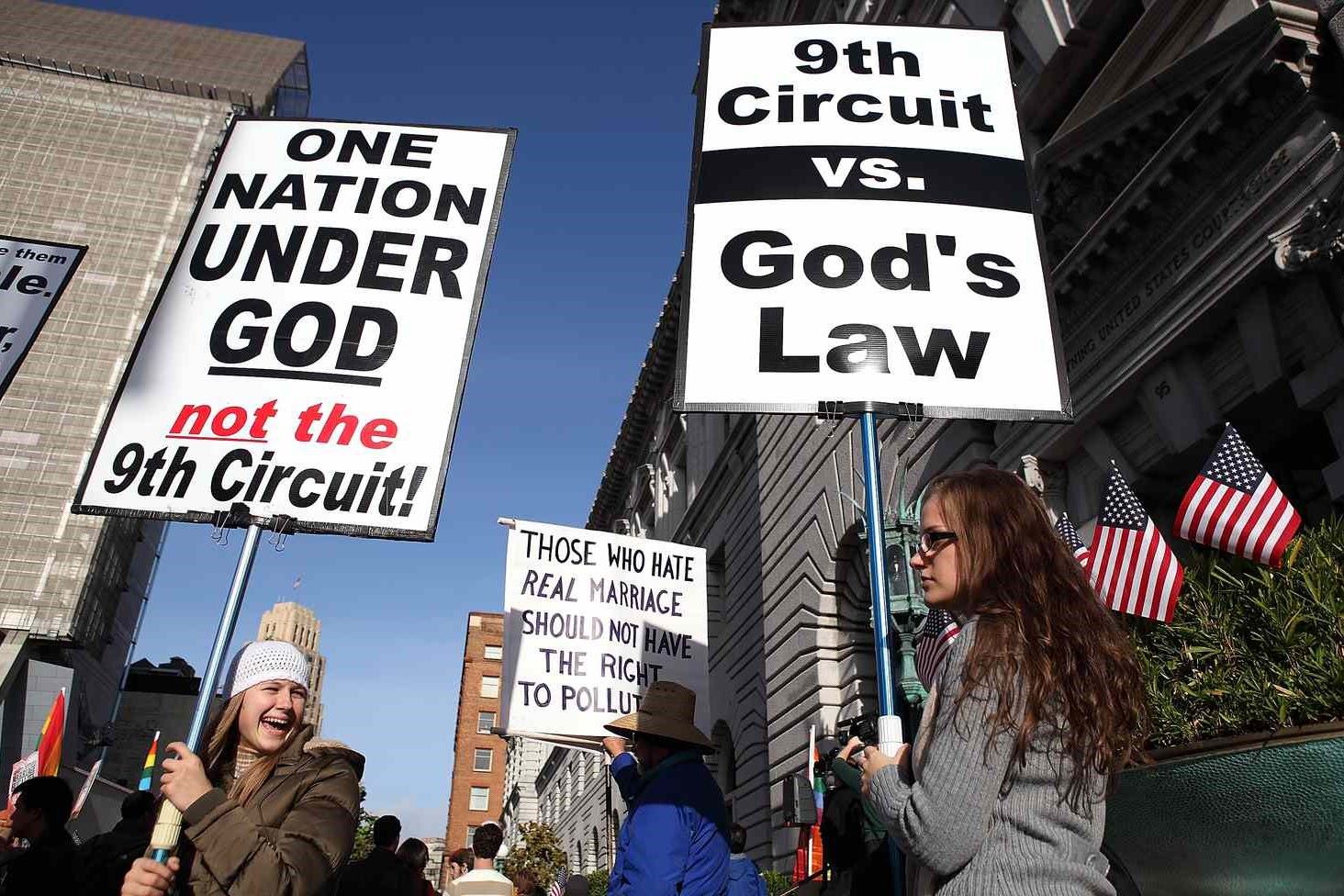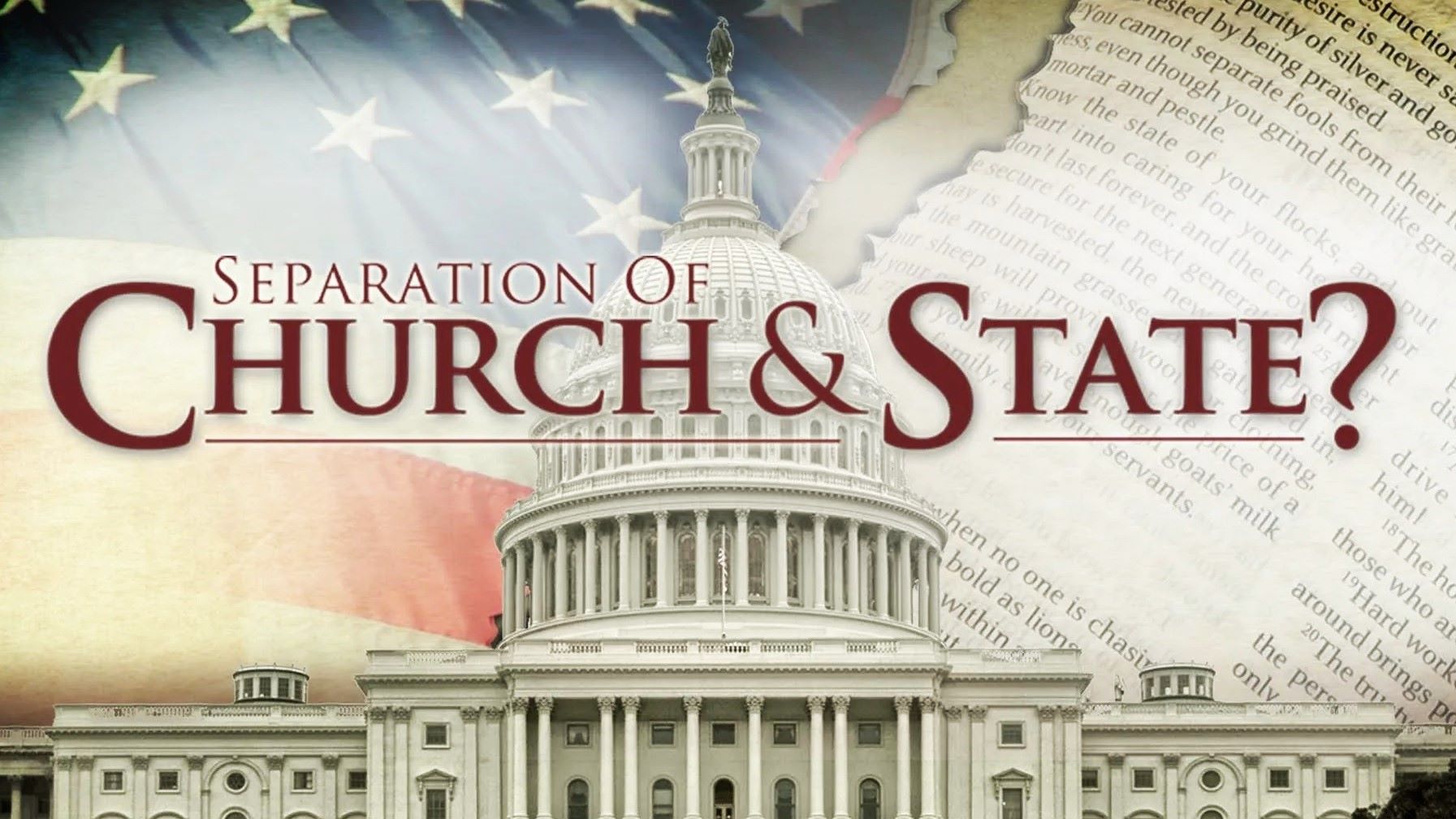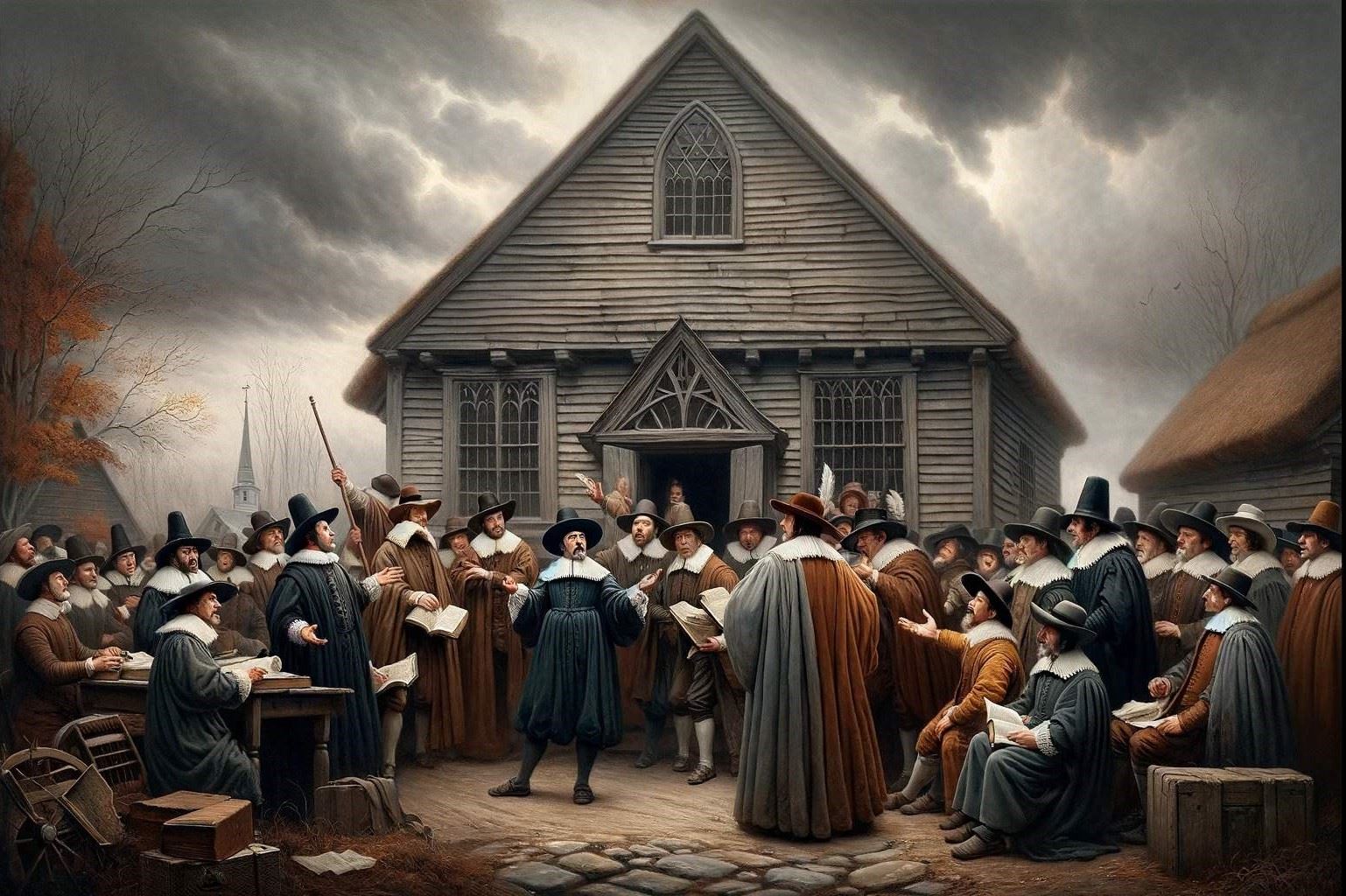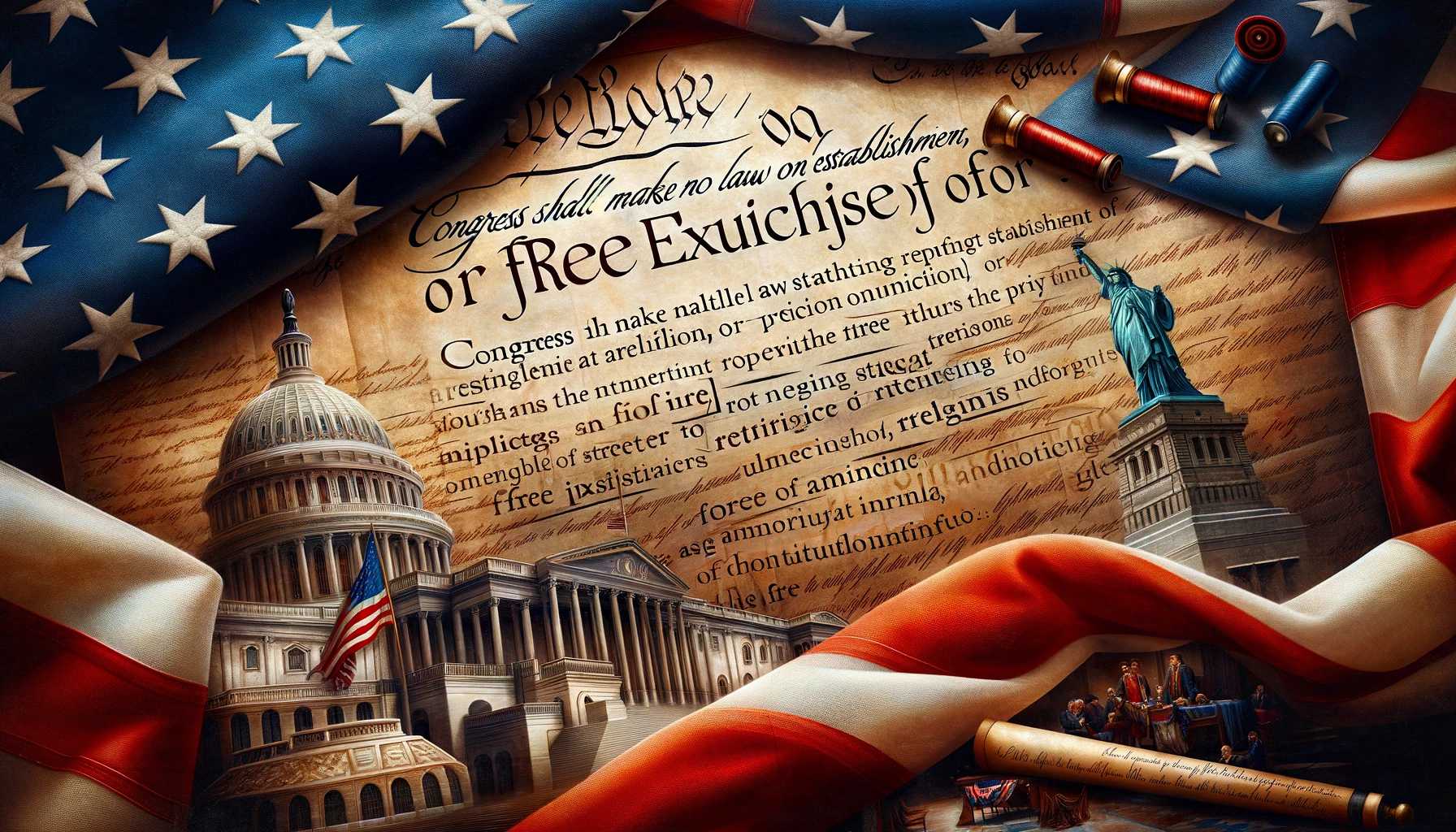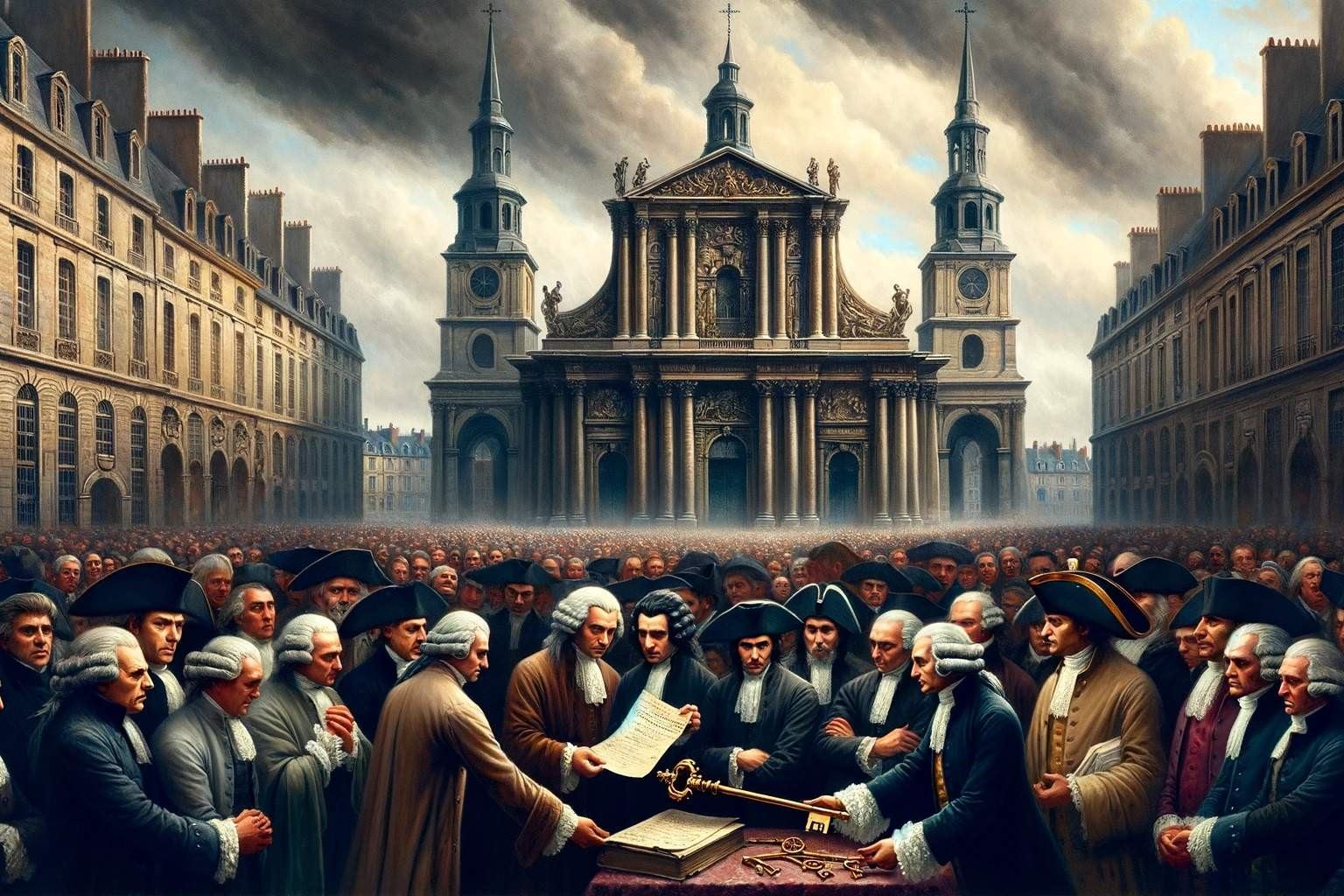Home>Theology and Spirituality>Radical Reformers Who Believed In Separation Of Church And State


Theology and Spirituality
Radical Reformers Who Believed In Separation Of Church And State
Published: February 11, 2024
Jason DeRose, Managing Editor at Christian.net, uses his expertise in religion and journalism to deepen understanding of faith's societal impacts. His editorial leadership, coupled with a strong academic background, enriches the platform’s diverse content, earning him recognition in both journalism and religious circles.
Discover the radical reformers who advocated for the separation of church and state, shaping the theology and spirituality of their time. Explore their beliefs and impact.
(Many of the links in this article redirect to a specific reviewed product. Your purchase of these products through affiliate links helps to generate commission for Christian.net, at no extra cost. Learn more)
Table of Contents
Introduction
The Radical Reformers were a diverse group of individuals who played a pivotal role in shaping the landscape of Christianity during the 16th and 17th centuries. These reformers, often considered as dissenters, were characterized by their steadfast commitment to the principle of the separation of church and state. Their unwavering belief in the autonomy of the church from secular authority set them apart from the prevailing religious and political structures of their time.
In the midst of the Reformation, a period marked by significant theological and ecclesiastical upheaval, the Radical Reformers emerged as a distinct voice advocating for a more profound transformation of the Christian faith. Their insistence on the separation of church and state was a radical departure from the prevailing norms, challenging the established order and provoking intense scrutiny from both religious and secular authorities.
The Radical Reformers' commitment to the principle of religious freedom and the autonomy of the church was deeply rooted in their interpretation of the New Testament teachings. They sought to emulate the early Christian communities, where faith was a matter of personal conviction and voluntary association, rather than a product of state coercion or institutional control.
As we delve into the lives and beliefs of the Anabaptists, Mennonites, Quakers, Baptists, and Separatists, it becomes evident that their collective legacy is one of resilience, conviction, and unwavering commitment to their principles. Their enduring influence continues to resonate in contemporary discussions surrounding religious liberty, individual conscience, and the relationship between faith and governance.
The Radical Reformers' unwavering dedication to the separation of church and state not only left an indelible mark on the course of Christian history but also laid the groundwork for the development of religious pluralism and the protection of individual liberties in the modern era. Their profound impact serves as a testament to the enduring power of conviction and the enduring relevance of their message in today's complex and ever-evolving world.
The Anabaptists
The Anabaptists, a significant faction within the Radical Reformation movement, emerged as a distinctive voice advocating for a radical restructuring of the Christian faith and the church-state relationship. The term "Anabaptist" itself, meaning "rebaptizer," was initially used pejoratively to describe their belief in adult baptism, a practice that diverged from the infant baptism customary in mainstream Christian denominations.
Central to the Anabaptist ideology was the conviction that the church should consist solely of committed believers who had undergone a voluntary, adult baptism as a public expression of their faith. This belief in adult baptism was deeply intertwined with their broader vision of a church that was separate from the state and free from external interference in matters of faith and doctrine.
The Anabaptists' commitment to the separation of church and state was rooted in their interpretation of the New Testament, particularly the teachings of Jesus and the early Christian communities. They emphasized the primacy of individual conscience and the voluntary nature of faith, rejecting the notion of a state-mandated or state-sanctioned religion.
In addition to their stance on baptism and the church-state relationship, the Anabaptists also espoused pacifism, advocating for nonviolent resistance and the rejection of military service. This principled stance often subjected them to persecution and marginalization, as it challenged the prevailing political and social order of the time.
Despite facing intense persecution and opposition from both Catholic and Protestant authorities, the Anabaptists remained steadfast in their beliefs, establishing vibrant communities across Europe and beyond. Their commitment to communal living, economic equality, and the pursuit of a simple, Christ-centered lifestyle set them apart as a radical and transformative force within the broader Reformation movement.
The enduring legacy of the Anabaptists is evident in the continued existence of Anabaptist denominations such as the Amish, Hutterites, and Mennonites, who have preserved and upheld many of the core principles and values of their forebears. Their unwavering commitment to the separation of church and state, adult baptism, and pacifism continues to inspire discussions on religious freedom, individual conscience, and the role of faith in contemporary society.
The Anabaptists' enduring influence serves as a testament to the resilience and enduring impact of those who dare to challenge the status quo and uphold their convictions in the face of adversity. Their legacy continues to resonate in the ongoing pursuit of religious liberty, social justice, and the enduring relevance of their message in today's complex and ever-evolving world.
The Mennonites
The Mennonites, a direct offshoot of the Anabaptist movement, trace their origins to the teachings and leadership of Menno Simons, a prominent figure within the Radical Reformation. Menno Simons, a former Catholic priest, played a pivotal role in shaping the theological and communal identity of the Mennonite movement, which would go on to have a profound impact on the landscape of Christianity.
Central to the Mennonite ethos is a steadfast commitment to the principles of nonviolence, community, and the separation of church and state. These foundational beliefs were deeply rooted in Menno Simons' interpretation of the New Testament and his rejection of the intertwining of religious and political authority. The Mennonites upheld the Anabaptist insistence on adult baptism as a voluntary expression of faith, rejecting the practice of infant baptism prevalent in mainstream Christian denominations.
The Mennonites' unwavering commitment to nonviolence and pacifism set them apart as a distinctive voice within the broader Christian landscape. Their principled stance against military service and participation in war, rooted in their interpretation of Jesus' teachings on love and forgiveness, subjected them to persecution and marginalization. Despite facing adversity, the Mennonites remained resolute in their convictions, establishing resilient communities characterized by mutual aid, communal living, and a commitment to simplicity and humility.
The enduring legacy of the Mennonites is evident in their global presence and their continued adherence to the core tenets of their faith. Mennonite communities, known for their emphasis on peacebuilding, social justice, and humanitarian efforts, have made significant contributions to the broader discourse on nonviolence and conflict resolution. Their commitment to the separation of church and state, coupled with their dedication to living out the teachings of Jesus in practical ways, continues to inspire individuals and communities seeking to embody the values of peace, compassion, and solidarity.
In today's complex and interconnected world, the Mennonite commitment to nonviolence, community, and the pursuit of justice remains as relevant as ever. Their enduring influence serves as a testament to the transformative power of conviction and the enduring impact of those who dare to challenge the status quo in pursuit of a more just and compassionate world.
The Quakers
The Quakers, also known as the Religious Society of Friends, emerged as a distinctive and influential movement within the Radical Reformation. Founded by George Fox in England during the 17th century, the Quakers espoused a radical vision of Christianity that emphasized direct spiritual experience, egalitarianism, and the rejection of formalized religious rituals and hierarchical structures.
Central to the Quaker ethos was the belief in the "Inner Light," the idea that every individual possesses a direct and unmediated connection to the divine. This emphasis on the immediacy of spiritual experience led the Quakers to prioritize personal revelation and communal discernment over traditional clergy-led religious practices. Their gatherings, known as "meetings," were characterized by silent worship, during which individuals were encouraged to listen for and share the promptings of the Inner Light.
The Quakers' commitment to the separation of church and state was a natural outgrowth of their belief in the sovereignty of individual conscience and the autonomy of the spiritual community. They adamantly opposed the imposition of religious uniformity and the intertwining of political and religious authority, advocating instead for a society where freedom of conscience and worship were upheld as fundamental rights.
In addition to their theological distinctiveness, the Quakers were known for their principled stance against violence and their commitment to social justice. Their advocacy for peace, equality, and the abolition of slavery positioned them as trailblazers in the pursuit of human rights and nonviolent resistance. Quaker activism and philanthropy have left an indelible mark on movements for social reform and humanitarian causes.
The enduring legacy of the Quakers is evident in their ongoing commitment to peacebuilding, social justice, and community engagement. Quaker organizations and individuals continue to be at the forefront of efforts to address issues of poverty, inequality, and environmental sustainability, embodying the values of simplicity, integrity, and compassion.
In today's complex and interconnected world, the Quaker emphasis on spiritual equality, nonviolence, and social responsibility remains as relevant as ever. Their enduring influence serves as a testament to the transformative power of conviction and the enduring impact of those who dare to challenge the status quo in pursuit of a more just and compassionate world.
The Baptists
The Baptists, a diverse group within the Radical Reformation, have left an indelible mark on the landscape of Christianity through their unwavering commitment to the separation of church and state and their distinctive theological convictions. Emerging in the early 17th century, the Baptists were characterized by their belief in believer's baptism, a practice that symbolized a personal confession of faith and a departure from the infant baptism prevalent in other Christian traditions.
Central to Baptist theology is the principle of religious liberty and the autonomy of the local church. Baptists championed the idea that each individual has the right to freely choose and practice their faith without coercion or interference from the state. This emphasis on religious freedom was deeply rooted in their interpretation of the New Testament, particularly the teachings of Jesus and the early Christian communities, where faith was a matter of personal conviction and voluntary association.
The Baptists' commitment to the separation of church and state was not merely a theoretical stance but was reflected in their advocacy for religious pluralism and the disestablishment of state-sponsored religion. Their unwavering belief in the autonomy of the local church and the priesthood of all believers set them apart as a distinctive voice within the broader Christian landscape.
In addition to their theological distinctiveness, the Baptists were known for their emphasis on congregational governance and the democratic decision-making process within the church. This commitment to local autonomy and congregational polity underscored their rejection of hierarchical ecclesiastical structures and their insistence on the equality of all believers.
The enduring legacy of the Baptists is evident in their global presence and their continued adherence to the core tenets of their faith. Baptist communities, known for their diversity and theological breadth, have made significant contributions to the broader discourse on religious liberty, individual conscience, and the relationship between faith and governance.
In today's complex and ever-evolving world, the Baptist commitment to religious freedom, congregational autonomy, and the pursuit of justice remains as relevant as ever. Their enduring influence serves as a testament to the transformative power of conviction and the enduring impact of those who dare to challenge the status quo in pursuit of a more just and compassionate world.
The Separatists
The Separatists, also known as the Dissenters, were a group of radical reformers who emerged during the 16th and 17th centuries, advocating for a complete separation from the established Church of England. Their beliefs and actions were deeply rooted in a profound commitment to religious autonomy and a rejection of the hierarchical and doctrinal constraints imposed by the state-sanctioned church.
Central to the Separatist movement was the conviction that the Church of England, with its ties to the monarchy and state authority, had strayed from the purity and simplicity of the early Christian church. The Separatists believed that true worship and spiritual authenticity could only be achieved through a voluntary association of believers, free from external interference or coercion. This principled stance led them to break away from the established church and form their own independent congregations, often facing persecution and exile as a result of their dissent.
The Separatists' insistence on the autonomy of the local church and the priesthood of all believers mirrored the broader Radical Reformation emphasis on individual conscience and the voluntary nature of faith. Their commitment to a church free from state control and external influence positioned them as trailblazers in the pursuit of religious freedom and the separation of church and state.
One of the most well-known groups of Separatists were the Pilgrims, who sought religious refuge in the Netherlands before eventually embarking on the historic voyage to the New World aboard the Mayflower. Their quest for religious liberty and the freedom to worship according to their own convictions laid the groundwork for the principles of religious pluralism and individual conscience that would later shape the identity of the United States.
The enduring legacy of the Separatists is evident in their unwavering commitment to the principle of religious autonomy and their willingness to endure persecution and hardship in defense of their beliefs. Their courageous stand for religious freedom and their refusal to compromise their convictions continue to inspire individuals and communities seeking to uphold the values of autonomy, conscience, and the pursuit of a genuine and unencumbered faith.
In today's complex and ever-evolving world, the Separatist emphasis on religious autonomy and the voluntary nature of faith remains as relevant as ever. Their enduring influence serves as a testament to the transformative power of conviction and the enduring impact of those who dare to challenge the status quo in pursuit of a more just and compassionate world.
Conclusion
The Radical Reformers, including the Anabaptists, Mennonites, Quakers, Baptists, and Separatists, collectively left an indelible mark on the course of Christian history through their unwavering commitment to the principle of the separation of church and state. Their enduring legacy is characterized by resilience, conviction, and a steadfast dedication to their principles in the face of intense opposition and persecution.
These reformers, often considered dissenters, challenged the prevailing religious and political structures of their time, advocating for a more profound transformation of the Christian faith. Their insistence on the autonomy of the church from secular authority was rooted in their interpretation of the New Testament teachings, particularly the emphasis on individual conscience, voluntary association, and the primacy of spiritual authenticity.
The enduring influence of the Radical Reformers is evident in the continued existence of their respective denominations and the global impact of their theological and ethical convictions. The Anabaptists' commitment to adult baptism, the Mennonites' dedication to nonviolence and community, the Quakers' emphasis on spiritual equality and peace, the Baptists' advocacy for religious freedom, and the Separatists' courageous stand for religious autonomy collectively shaped the landscape of Christianity and continue to inspire discussions on religious liberty, individual conscience, and the relationship between faith and governance.
In today's complex and ever-evolving world, the principles upheld by the Radical Reformers remain as relevant as ever. Their enduring influence serves as a testament to the transformative power of conviction and the enduring impact of those who dare to challenge the status quo in pursuit of a more just and compassionate world. The legacy of the Radical Reformers continues to resonate in the ongoing pursuit of religious liberty, social justice, and the enduring relevance of their message in today's complex and ever-evolving world.
